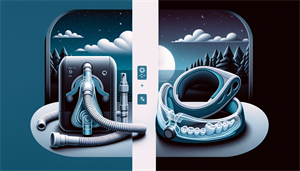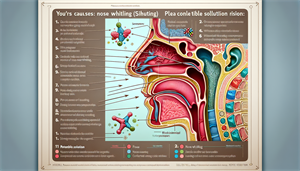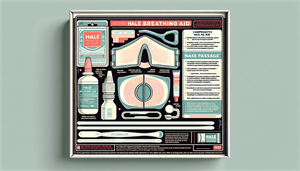
Are you struggling with sleep apnea and searching for the best treatment option?
There are two primary choices: Continuous Positive Airway Pressure (CPAP) therapy and mouthpieces. But how do you determine which one is right for you? In this blog post, we’ll delve into the pros and cons of each treatment to help you make an informed decision about your sleep apnea management in the context of “CPAP vs mouthpiece”. Join us as we compare CPAP and mouthpieces, examining their effectiveness, convenience, and suitability for different cases of sleep apnea. Let’s explore these treatment options and find the best solution for your restful nights in the cpap vs mouthpiece debate!
Key Takeaways
Sleep apnea is a serious sleep disorder that can lead to severe health consequences and should be treated with sleep medicine. CPAP therapy is the gold standard for treating sleep apnea, offering numerous benefits but also some drawbacks such as discomfort and noise. Mouthpieces offer an alternative solution for those with mild to moderate cases of sleep apnea, providing comfort, convenience and potential resolution of symptoms. They may not be suitable in all cases so consulting a healthcare provider is recommended.
Understanding Sleep Apnea
Sleep apnea is a prevalent sleep disorder characterized by pauses in breathing during sleep, with obstructive sleep apnea (OSA) being the most common type, caused by airway obstruction. Imagine the frustration of trying to sleep while your airway is repeatedly blocked, causing you to gasp for air and wake up frequently throughout the night. Not only does this lead to poor sleep quality, but it can also result in severe health consequences if left untreated.
There are two main types of sleep apnea: obstructive sleep apnea, caused by the obstruction of the airway due to throat tissues, and central sleep apnea, characterized by a disconnect between the brain and the muscles responsible for breathing. In some cases, patients may have a combination of both types, known as Complex Sleep Apnea Syndrome. No matter the type, it is crucial to treat sleep apnea effectively, including the use of sleep medicine, to enhance sleep quality and overall health.
CPAP Therapy: The Standard Treatment
CPAP therapy is the most efficacious treatment for sleep apnea, and it’s considered the gold standard by many sleep specialists. The therapy involves the use of a machine that provides continuous positive airway pressure to maintain an open airway during sleep. Keeping the airway open, CPAP therapy successfully mitigates sleep apnea, improves sleep quality, and lowers the chances of chronic illnesses.
The CPAP machine is designed to deliver a steady flow of pressurized air to prevent the airway from collapsing during sleep. Many CPAP machines come equipped with features such as heated humidifiers to alleviate dryness, ramp modes for gradual pressure settings, and auto-detection features to initiate and stop therapy upon mask removal. Proper care and maintenance will ensure your CPAP machine remains in good working condition. On average, CPAP machines typically last five to seven years before needing a replacement.
While CPAP therapy is highly effective for treating moderate to severe OSA, it may not be the best choice for every individual. Some people with mild to moderate OSA might be offered the choice between an oral appliance and CPAP. Knowing the advantages and disadvantages of CPAP can help you make an informed decision about which therapy is most suitable for you.
CPAP Pros
CPAP therapy boasts numerous advantages, such as:
- Successfully treating sleep apnea
- Improving respiration
- Decreasing the risk of cardiovascular issues
- Enhancing sleep quality and energy levels
- Leading to improved cognitive function and weight management
By utilizing CPAP correctly, patients will experience reduced likelihood of developing chronic health conditions associated with sleep apnea.


